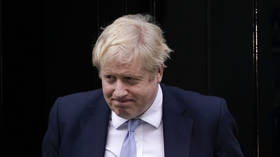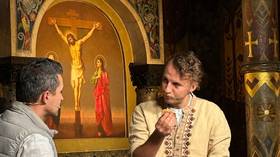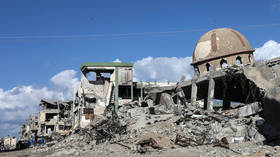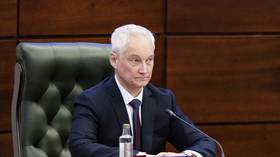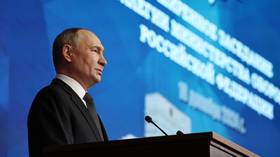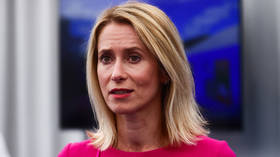Sue Gray’s initial report into alleged lockdown-breaching events at Downing Street during the pandemic is light on detail, but condemns inappropriate conduct
The UK government received Sue Gray’s report into alleged pandemic rule-breaking at Downing Street on Monday morning. Shortly after, a limited version of the Cabinet Office inquiry into ‘Partygate’ was made public.
The 12-page document was anticipated to be pivotal in determining Prime Minister Boris Johnson’s future. However, Gray acknowledged she was “extremely limited” by a request from the Met police to only include “minimal reference” to events it is also investigating – and the document does not include the bombshells some were expecting.
What was under investigation?
Senior civil servant Sue Gray was commissioned by the government to investigate a series of events at Downing Street, the PM’s office and residence, allegedly in breach of his own Covid-19 rules. She was tapped for the job after the Cabinet Secretary Simon Case, who was initially given the task, was accused of being aware of lockdown-breaching events in his own office.“I am extremely limited in what I can say about those events [under police investigation],” she wrote, adding it was therefore “not possible at present to provide a meaningful report setting out and analysing the extensive factual information” she was able to gather.
What were the initial findings?
While short on detail, the document published on Monday accuses the government of widespread misconduct.“Some of the behaviour surrounding these gatherings is difficult to justify,” the report reads, referencing the stringent restrictions Britons lived under during the height of the pandemic.“sadly even died while observing the Government’s regulations and guidance rigorously” and that officials had failed to live up to the expected standards.“too little thought” was given to the organization of these events, including a dearth of consideration for the public health risks and little awareness of how they would be viewed by the public.“Some of the events should not have been allowed to take place. Other events should not have been allowed to develop as they did,” the report reads.“the excessive consumption of alcohol” and calls on the government to establish strict protocol to govern its consumption in the future. sensible ” and “appreciated ” but that the space should not be used for any gatherings without clear oversight. “blurring of lines of accountability.” The report also notes that some employees felt unable to raise their concerns about behaviors they witnessed at work.
How was the report conducted?
Gray was supported by a small team of civil servants in the Cabinet Office, none of whom had connections with the events under examination. “on whether the criminal law has been broken” and that remained a matter for law enforcement. She said she had been in “regular contact ” with the Met Police throughout the probe.
What does it mean for Boris Johnson?
The report does not mention the prime minister by name or make any reference to misdemeanors that he personally is alleged to have committed. “I get it and I will fix it.” The PM said he would be making changes to the way in which the government is run.
You can share this story on social media:
Follow RT on 